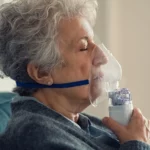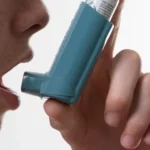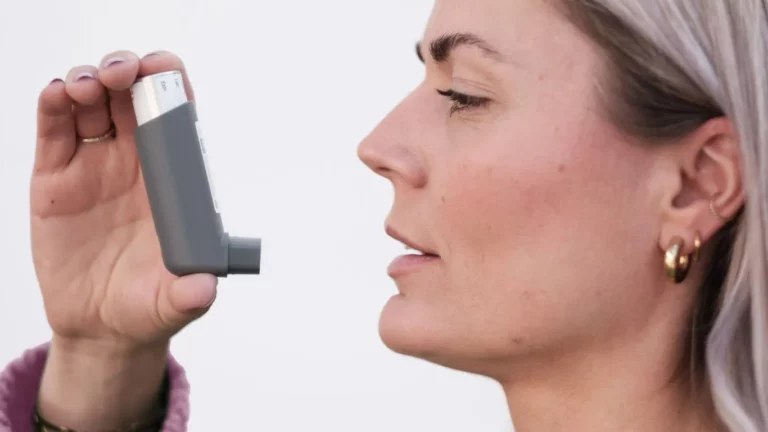Asthma Control for Athletes: Your Complete Guide to Breathing Easy During Workouts
Wondering how to control asthma while pushing your limits as an athlete? You’re definitely not alone—many athletes have asthma, and they still crush their workouts! It’s all about understanding the right strategies to keep your breathing under control. In this guide, we’re talking about how to manage asthma, prevent flare-ups, and ensure you’re able to perform at your best, no matter what sport you’re into.
Why Asthma Can Be a Challenge for Athletes
First off, let’s talk about why asthma might feel like a hurdle when you’re an athlete. Asthma causes inflammation and narrowing of the airways, which means less air gets to your lungs. During exercise, your body demands more oxygen, so any restriction in your airways can make it harder to breathe. Things like intense exercise, cold weather, or allergens in the air can trigger asthma symptoms, making it feel like you’re running out of breath before your muscles do.

But here’s the good news: with the right management, athletes with asthma can still have a top-notch performance! The key is staying proactive and knowing what works for your body.
Top Tips for Controlling Asthma While Exercising
When you have asthma, your approach to training may need a little tweaking. But that’s not a bad thing! Here are some easy-to-follow tips that can help you breathe easier while staying active.
1. Work with Your Doctor on a Game Plan
Before you even lace up your sneakers, talk to your doctor about your asthma. They can help you develop a personalized plan, including medication (like inhalers or other bronchodilators) that you can use before exercise to open up your airways. A lot of athletes find that using their inhaler 10-15 minutes before a workout can make a huge difference. Always stick to the plan your doctor gives you, and don’t skip medications, even if you’re feeling good.
2. Warm Up Properly
Jumping into intense exercise without warming up can be a recipe for disaster, especially for athletes with asthma. A proper warm-up helps your body gradually adjust to the physical stress of exercise, which can reduce the chances of an asthma attack. Make sure to start slow—light jogging or dynamic stretches can prepare your lungs and muscles for what’s to come.

3. Pace Yourself
Asthma doesn’t mean you have to go full throttle 100% of the time. Pacing yourself during workouts is super important. Try to gradually build up your intensity rather than going all-out right away. This gives your lungs a chance to keep up with your body’s demand for oxygen. You can always challenge yourself to do a little more as your asthma is better controlled over time.
4. Stay Hydrated
Believe it or not, staying hydrated plays a big role in asthma control. When your body is well-hydrated, your airways are less likely to get irritated. Dehydration can actually worsen asthma symptoms, so make sure you’re drinking enough water before, during, and after your workouts. Hydration is key to keeping your respiratory system in check.
5. Know Your Triggers
Asthma attacks can be triggered by a variety of factors, like pollen, pollution, cold air, or even stress. When you’re an athlete, it’s important to know what sets off your asthma and take precautions. For example, if you’re allergic to pollen, consider doing your outdoor training early in the morning or in areas with fewer allergens. If cold air triggers your asthma, consider wearing a scarf or mask to warm the air you breathe in.
6. Use a Peak Flow Meter
A peak flow meter is a handy device that measures how well air moves out of your lungs. Many athletes with asthma use it to monitor their breathing before and after exercise. By keeping track of your peak flow, you can spot early signs of asthma issues and take action before things get worse. If your peak flow is lower than usual, it might be a sign that your asthma is not well-controlled, and you may need to adjust your medication or rest.
What to Do If You Have an Asthma Attack During Exercise
It’s good to be prepared for anything, even if you take every precaution. If you start to feel an asthma attack coming on, it’s important to stop exercising and use your rescue inhaler (or other prescribed medication) right away. Don’t push through the symptoms—this could make things worse. Rest in a calm place, and monitor your breathing. If you’re not feeling better within 10-15 minutes or if the symptoms get more severe, don’t hesitate to call for medical help.

What Sports Are Best for Athletes with Asthma?
One of the most common questions athletes with asthma ask is which sports they should focus on. The good news? Most sports are absolutely doable with the right asthma control. However, certain sports are a little easier on your breathing than others:
- Swimming: The moist air around a pool can actually be easier on the lungs. Swimming also helps strengthen your lungs and improve cardiovascular fitness.
- Cycling: Cycling at a moderate pace allows you to control your intensity, making it a good choice for asthma control.
- Walking or Light Jogging: These activities are less intense but still provide great cardiovascular benefits without stressing your lungs too much.
- Yoga: It’s a great way to practice deep breathing techniques and stay flexible without triggering asthma symptoms.
Conclusion: You Can Still Compete with Asthma
Asthma doesn’t have to stop you from being an awesome athlete. By understanding your triggers, sticking to your asthma management plan, warming up properly, and staying hydrated, you can train hard and still have a great performance. So don’t let asthma hold you back—control it, and show the world what you’re made of!

Appendices
FAQs
- Can I play competitive sports if I have asthma? Absolutely! With the right asthma control, you can participate in just about any sport. Just work with your doctor on a plan, use your medications as needed, and monitor your symptoms during training.
- What is the best medication for asthma control during exercise? Many athletes use inhalers that contain bronchodilators to open up the airways before exercise. Your doctor will recommend the best option for your specific needs.
- How do I know when my asthma is getting worse during a workout? Watch out for signs like shortness of breath, coughing, wheezing, or tightness in your chest. If you experience any of these symptoms, take a break and use your inhaler as prescribed.
- Can asthma be managed naturally without medication? While medication is usually necessary for asthma management, there are natural ways to reduce triggers, such as avoiding allergens and staying in good shape. Always consult with your doctor before trying any new treatments.
- Can cold air affect asthma during exercise? Yes, cold air can trigger asthma symptoms in some athletes. If this is the case for you, try wearing a scarf or mask to warm the air before you breathe it in.














